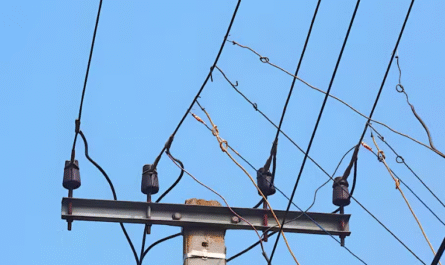In a significant development for Pakistan’s fiscal and political landscape, President Asif Ali Zardari has constituted the 11th National Finance Commission (NFC) to finalize a new revenue-sharing award between the federation and the provinces. The NFC Award, mandated under Article 160 of the Constitution, is one of the cornerstones of Pakistan’s federal structure as it determines how the divisible pool of national revenues is distributed. With economic challenges mounting, provinces demanding greater autonomy, and the federal government struggling to meet its fiscal obligations, the 11th NFC has arrived at a crucial moment in the country’s history.
Understanding the NFC Award
The National Finance Commission Award is a constitutional mechanism that distributes financial resources between the federal government and provinces. The divisible pool mainly consists of federal tax revenues, which are then allocated according to agreed-upon formulas. Traditionally, the biggest share goes to the provinces, since they are responsible for key public services such as health, education, law and order, and infrastructure.
The last award, the 7th NFC Award (2009), was a landmark agreement under President Zardari’s first tenure. It increased the provincial share in the divisible pool from 47.5% to 57.5%, giving provinces a much larger portion of revenues. However, since then, Pakistan has not seen a fresh award despite constitutional requirements for periodic revision every five years. Instead, the 7th Award has been extended repeatedly due to political disagreements and economic instability.
Why the 11th NFC Matters Now
The timing of the 11th NFC Award is particularly significant. Pakistan faces:
- High fiscal deficits: The federal government struggles with debt repayments and limited revenue sources.
- Growing provincial needs: Provinces require more funds for education, healthcare, disaster management, and infrastructure.
- IMF constraints: Pakistan’s ongoing arrangements with the International Monetary Fund (IMF) require stronger revenue generation, which impacts how much can be shared with provinces.
- Demand for equity: Smaller provinces, especially Balochistan and Khyber Pakhtunkhwa (KP), have long argued that they need greater resources due to their development gaps and security-related expenses.
The new award must strike a delicate balance between federal responsibilities, such as debt servicing and defense, and provincial demands for more autonomy and resources.
Composition of the 11th NFC
President Zardari has appointed the finance ministers of all four provinces along with key federal representatives. The commission also includes technical experts to assist in designing a fair and sustainable formula. Typically, the NFC considers multiple criteria for revenue distribution:
- Population share (traditionally the dominant factor)
- Poverty and backwardness
- Revenue generation capacity
- Inverse population density (cost of service delivery in sparsely populated areas)
The 2009 award had introduced a multi-factor formula, moving away from sole reliance on population, which was seen as favoring Punjab disproportionately. Whether the 11th NFC continues with that approach or revises it further will be a key point of contention.
Challenges Ahead
1. Federal vs. Provincial Responsibilities
The federal government argues that after giving away 57.5% to provinces, it is left with little to fund critical responsibilities such as defense, pensions, subsidies, and debt servicing. Some officials have even suggested reducing the provincial share—a move likely to spark strong political resistance.
2. Provincial Revenue Mobilization
Provinces have been criticized for not raising enough revenues themselves, particularly from agriculture and property taxation. The federal government wants provinces to contribute more actively rather than relying heavily on transfers.
3. Inter-Provincial Equity
Smaller provinces demand a bigger share, citing poverty levels and development needs. Sindh, on the other hand, argues that since it generates a bulk of the national tax revenue through ports and industries, it deserves higher compensation. Balancing these competing claims will test the political will of the NFC.
4. IMF and Fiscal Reforms
Pakistan’s IMF program requires fiscal discipline, tax reforms, and improved revenue collection. Any NFC Award that increases provincial transfers without ensuring revenue growth could complicate negotiations with lenders.
Expectations from the 11th NFC
Stakeholders across the board are expecting the new award to:
- Update the distribution formula to better reflect poverty, development gaps, and revenue generation.
- Ensure fiscal sustainability by leaving enough resources for the federal government to meet obligations.
- Encourage provincial taxation reforms, particularly in agriculture, services, and property sectors.
- Provide a fair deal to smaller provinces, ensuring balanced development across Pakistan.
- Create mechanisms for accountability, so provinces use their larger shares effectively.
Political and Economic Implications
The NFC Award is not just a financial agreement; it is deeply tied to federal-provincial relations. A fair award strengthens the federation by addressing grievances of smaller provinces. Conversely, delays or controversial decisions can fuel political tensions.
President Zardari’s leadership in forming the commission carries symbolic weight. His previous role in pushing through the 7th NFC Award is remembered as a milestone in Pakistan’s democratic and federal evolution. If the 11th NFC delivers a consensus-based and forward-looking award, it could significantly improve center-province harmony while giving a boost to Pakistan’s struggling economy.
Conclusion
The formation of the 11th NFC by President Asif Ali Zardari is a pivotal moment for Pakistan. With economic instability, IMF constraints, and growing provincial demands, the new award must balance competing interests while safeguarding fiscal stability. The success of this process depends on political consensus, fairness in distribution, and commitment from both the federation and provinces to mobilize revenues and spend wisely.



